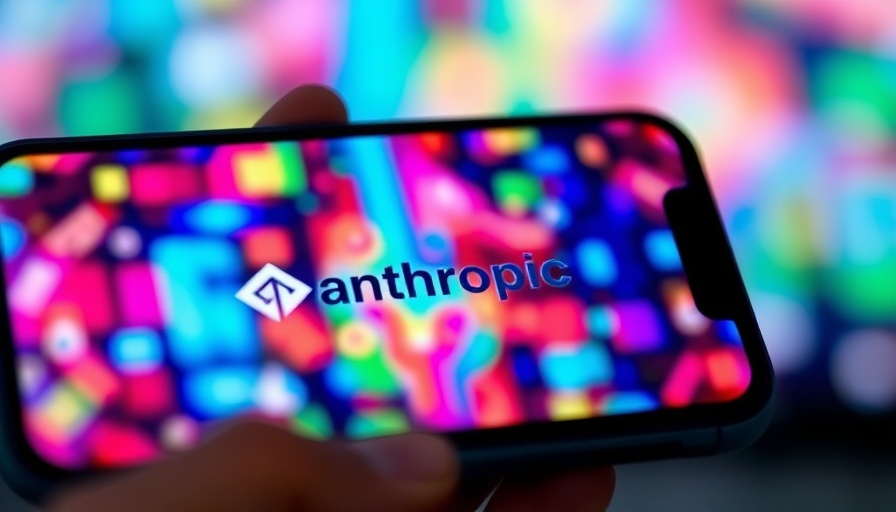
The Rise of Anthropic: Poised for AI Dominance
Anthropic, backed by tech giant Amazon, recently made headlines as its valuation surged to a staggering $61.5 billion following a successful Series E funding round. This milestone does not just signify the company's rapid financial ascent but also highlights the rising tide of interest and investment in artificial intelligence (AI), particularly generative AI technologies. Founded in 2021 by former OpenAI executives Dario and Daniela Amodei, Anthropic aims to create safer and more reliable AI systems. This latest funding, which brought in $3.5 billion, is a vibrant testament to investor enthusiasm in a market characterized by exponential growth and innovation.
Investment Frenzy: What’s Driving Valuations?
Investors are betting big on the promise of generative AI—a technology that has the potential to transform various industries. Anthropic's dramatic valuation increase reflects not merely speculation, but a significant commercial momentum that has been building over the years. Reports indicate that the company's revenue reached $1 billion last year, with an impressive 30% growth already recorded in the first quarter of 2025. This performance starkly contrasts with traditional software industries, where achieving similar growth might take decades.
Much of this confidence stems from Anthropic’s innovations, particularly its Claude series of AI models designed for business applications. Unlike many of its competitors that focus on consumer products, Anthropic zeroes in on enabling enterprises to enhance operations through advanced AI capabilities, evidenced by the integration of Claude into various platforms from Zoom to Pfizer robots in clinical settings.
Comparative Insights: Anthropic in the AI Landscape
Anthropic's funding round puts it in close competitive range with OpenAI, which boasts a valuation over $300 billion. Both companies have aggressive strategies but diverge significantly in their target markets. While OpenAI expands its reach to consumer applications, Anthropic’s B2B approach leverages partnerships with major corporations like Amazon and Google, which has invested over $4 billion into the company.
This competitive dynamic underscores a crucial evolution in the AI startup ecosystem. As they mature, valuations are shifting—while the multiples appear lower than previous periods of heightening exuberance, they remain high relative to traditional tech standards, displaying a distinct paradigm for evaluating growth.
Looking Ahead: Anthropic's Ambitious Goals
With its latest round of funding, Anthropic is poised to enhance its research in mechanistic interpretability and alignment—critical areas as AI systems become more complex and prevalent in everyday applications. The company is also focusing on expanding its computational capacity and furthering its international business strategy, particularly in Asia and Europe.
However, profitability remains elusive as simultaneous investments in growth-related areas leave Anthropic operating at a loss. Yet, investor sentiment remains bullish; they see the immense potential of AI as capable of reshaping economies and workforces worldwide. In fact, analysts predict the generative AI market could reach a valuation of $1 trillion in the next decade, spotlighting an era of unprecedented technological innovation.
The AI Revolution: Expanding Opportunities
As Anthropic gains traction, we are reminded of the broader implications of AI advancements in various sectors. The rapid deployment of intelligent systems not only revolutionizes how tasks are performed but also raises critical discussions about the ethical implications of AI in governance, healthcare, and beyond. The contributions of companies like Anthropic, which prioritize safety alongside capability, provide a promising pathway to harnessing the power of AI responsibly.
This period is indeed pivotal. From large corporate investments to rapid revenue growth, Anthropic exemplifies a growing belief in how generative AI can enhance productivity and transform operations across industries. The question remains: will these ambitious valuations translate into sustainable profit models, or could we be seeing the early signs of an AI bubble?
For those passionate about the future of artificial intelligence, staying informed about developments like Anthropic's trajectory can provide valuable insights into the trends that will shape our world. As AI technology continues evolving, the essential question is how these advances will influence daily interactions, work environments, and ultimately our society as a whole.
For the latest updates and deep dives into the evolving AI landscape, consider subscribing to leading technology newsletters. Your engagement not only informs you but supports a community keen on navigating these transformative changes. Join the conversation!
 Add Row
Add Row  Add
Add 




 Add Row
Add Row  Add
Add 

Write A Comment